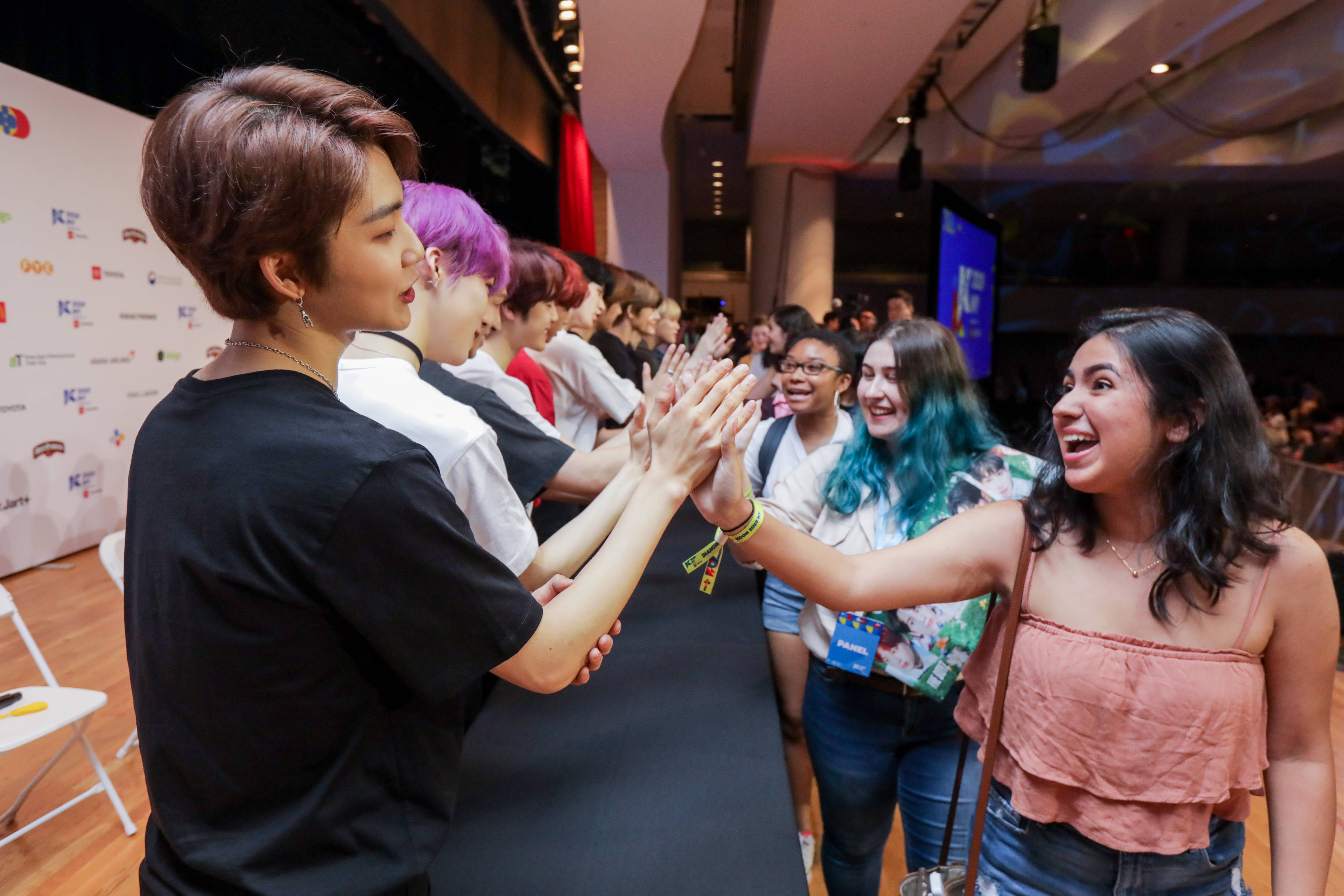To my fellow K-pop stans and confused Westerners, why does the vibe get weird when idols are asked about their dating life in interviews? How come their responses always seem a bit awkward and a bit tactful at the same time? Idols are known for their die-hard fans and they’re often judged for it by outsiders. Can we blame them when certain structures are in place that encourage this?

What are Parasocial Relationships?
Parasocial relationships are one-sided relationships that are the product of celebrity interactions with their fans. This is usually achieved through social media, which allows idols to interact directly with their fanbase. With the dominance of Instagram and Twitter, as well as streaming sites, celebrities are able to crease a sense of connection and relatability that makes us feel like their friends, or more, their partners., What they’re having for breakfast, what they use in the shower, where they’re partying etc become public news. They talk to us like they know us, with an air of comfortability and casualness that puts us at ease as if we’re with someone we know well.
However, though we can comment and like, we’re not directly interacting with them. They don’t know about our existence at all, in fact. In reality we are a distant number to them, even if they genuinely value our support.
Parasocial Relationships and the K-Pop Industry
The K-Pop industry thrives off parasocial relationships. The performance of the artists are just one side of the coin. Idols are also marketed for their personalities (and looks, of course) through social media, variety shows, V Lives, meet and greets (often based on how many albums you can afford to purchase) and so on.

Stars are taught, sometimes for years, on how to become performers. Many were scouted based on their looks alone. Though these looks afford them popularity, they often can’t enjoy the fruits of this due to dating bans. If they are caught, they lose public trust and their career is affected. Take Hyuna and Dawn for example, who were forced to leave their record labels when they went public about their relationship. In fact, fans prefer fantasies of same-sex couples within groups instead and labels monopolize on this in their concepts for music videos and live performances. If idols can’t date fans, they can only date each other.

When It Goes Too Far
I’m not saying that there’s anything wrong with a cheeky celebrity obsession and I must confess I have had dreams about Jin from BTS being my boyfriend. Most parasocial relationships exist at a distance, with both sides partaking in some way, even though one side is often being knowingly used for money. Yet a line is crossed when fans start invading idol’s privacy. These sasaengs follow them to places they shouldn’t be- on flights, to their homes. They try to find jobs that place them closer to their idols. They gain access to idol’s personal details too. Lines are evidently crossed in which the idol cannot consent to fan involvement.
When the West Makes It Awkward
K-Pop stans must have seen videos online where idols get awkwardly asked about their dating life in America and the UK. Yet, celebrity culture in South Korea is not like that in the West, most of the time they do not openly date as companys view it to affect their music sales. This is an awkward question for them and it highlights how Western media places emphasis on celebrity gossip, often over aspects of their professional careers. It risks the delicate relationship with fans. Even if the creation of parasocial relationships for profit is not exactly ethical, fans willingly give money to support them. In fact, we could say that these interactions highlight the issues with parasocial relationships within this context.
There is also a need to respect different cultures when encountering them within the public sphere. It is a hard balance to make, but if interviewers are attempting to dismantle the ethics of the industry, their are better questions to ask, suggesting that they are being deliberately intrusive in order to feed into the need in Western culture for celebrity gossip. It appears that idols are simply being put on the spot for entertainment. Yet if given a public platform, there is a need for interviewers to research other culture before broadcast to avoid othering their guests. There is simply no need to squeeze K-Pop stars into our own cultural boxes.
Leave a Reply